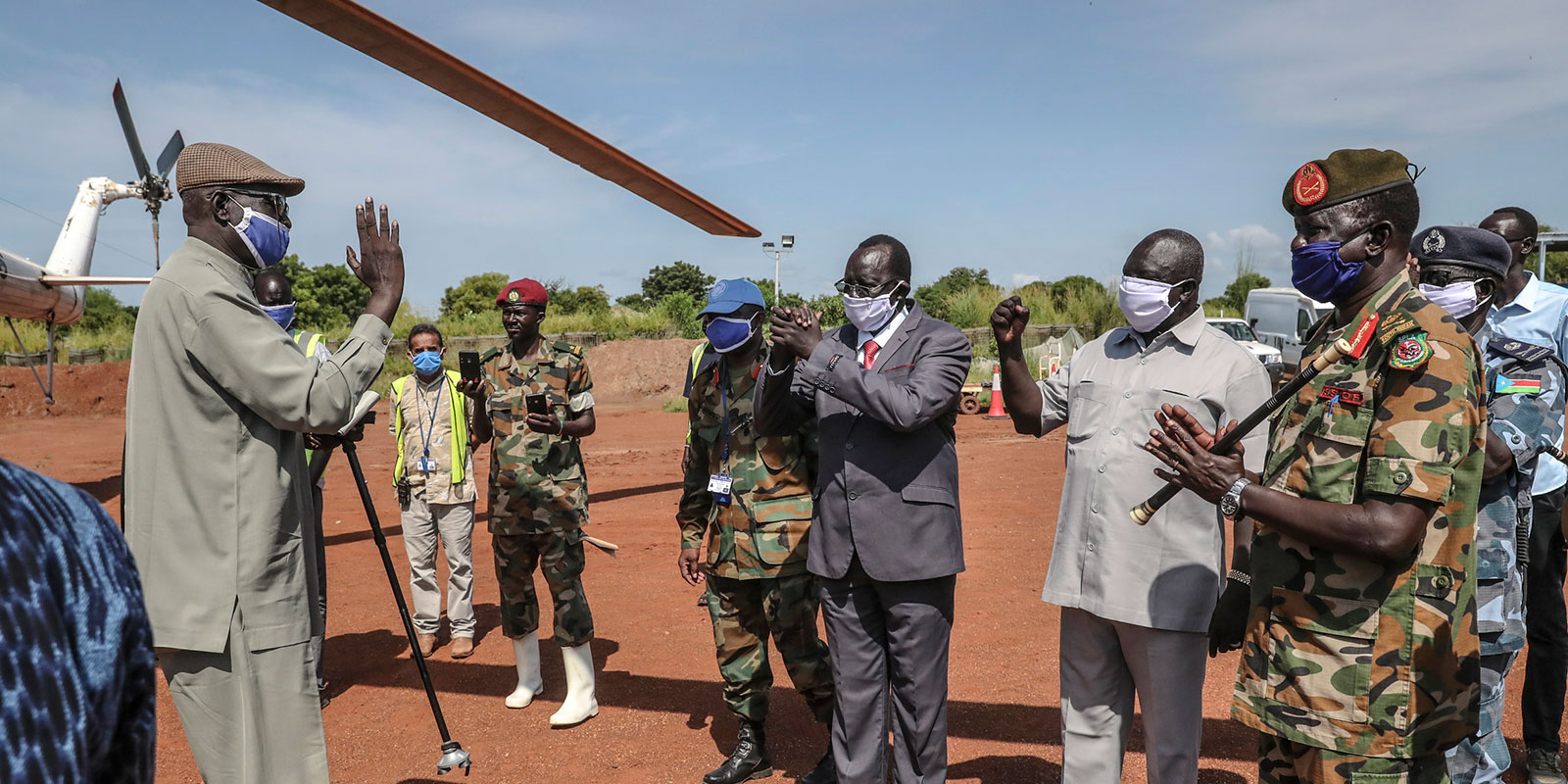The State of Security
Even in sectors in which state agencies have been formed, such as in local states, there is confusion about the mandate and legal framework under which the institutions should operate.While conflict continues in South Sudan, fighting between the two major warring parties—the South Sudan People’s Defence Forces (SSPDF) and the Sudan People’s Liberation Army-in-Opposition (SPLA-IO)—has subsided. Although the security situation in the capital Juba has improved, the lack of an efficient justice system has led to increased intercommunal violence in many South Sudan states. Insecurity has contributed to an anarchical environment, which has led to the mushrooming of organised armed youth groups who have vowed to defend their communities. The state of politics remains toxic. The increasing intercommunal conflicts in Warrap, Lakes, and Jonglei have led to a polarised discourse in Juba among elites, who are seen as fighting proxy wars using organized armed youth in their communities.
Due to a combination of factors, including #COVID19, there has been very little progress with the implementation of the peace agreement between February 2020 and February 2021. @JongethonACCORD_online
Tweet
The state of the political discourse on a democratic transition
The decentralization of violence and the inability of Juba to curb insecurity in the states mean that the government is no longer viewed as legitimate. As a response to this contestation of the political legitimacy of the central authority, the prevailing political discourse in Juba, which was initiated by the National Dialogue and is being advanced by the Jieng Council of Elders (JCE) and other forums within the South Sudanese diaspora, blames leadership failure for the deterioration of the security, humanitarian, and economic conditions in the country and calls for a democratic transition that should see the leading actors, President Salva Kiir and Vice-President Riek Machar retiring from politics.
What is the fate of the 2018 peace agreement?
The peace agreement of September 2018 offered the only hope of ending the armed sector’s privatisation and creating a unified force. The agreement promised to assemble a unified force of 83,000, which would constitute the military, the national and state police, the national security services, the prison and wildlife services, and the fire brigade. However, their training was first interrupted by the COVID-19 pandemic and then by logistical difficulties, which were possibly exacerbated by a lack of political will. The commanders of these forces were supposed to be trained in December 2020 and to deploy as soon as possible thereafter. Notwithstanding, these supposedly unified forces continue to pledge allegiance to individual leaders, as attested by frequent defections between the SPLA-IO and the SSPDF.
The author’s exchanges with armed sector leaders indicate slow or no progress on the security arrangements chapter of the agreement as well as a lack of the basic essentials, such as uniforms, food, and medicine, required to graduate the unified forces in the cantonment sites, both of which are blamed on a lack of political will on the sides of the warring parties. By way of comparison, the implementation of the Sudanese peace accord, which was signed in Juba much later, has almost reached the completion phase, while South Sudan is still forming a government. There seems to be a desire to prolong the transitional government’s lifespan among those who are afraid of a democratic transition.
The high numbers of deaths caused by the #coronavirus outbreak in Juba have reached a level where they could contribute to political instability. @Jongethon
Tweet
Other observers think that the implementation of the peace agreement is unworkable. First, the warring parties have not genuinely accepted the process, which is signalled by the many armies that remain unintegrated, such as the Agwelek forces under General Johnson Olony in Upper Nile and the SPLA-IO forces in Jonglei under General Simon Gatwech. Second, the bloated governments at the state and national levels will be hard to fund when they face fiscal crises. The consequences of the inability of Juba to support the basic needs of government agencies will not take long to be realised. A former government official told the author that he had rejected an offer of a state appointment because he knew it would be pointless to be in a government that does not have sufficient money to implement its programs. Another cabinet minister said he would be happy to serve voluntarily; however, the government not only lacks money, but also the necessary vision, which would render his volunteering useless.
Notwithstanding, the COVID-19 pandemic has served President Salva Kiir by providing a rationale for the presidency to avoid engaging intensely in the implementation of the peace agreement.
The 2018 peace agreement will remain dormant for the foreseeable future because it is no longer guiding the actions of the warring parties. Consequently, the country faces the risk of a multidirectional war, which could occur at any time, as the Juba-based elites are fighting proxy wars using communities. In the same way as the wrangling over the Ministry of Petroleum and Mining within the SPLA-IO triggered a resumption of conflict in July 2016, the President’s office is experiencing similar tension. The high numbers of deaths caused by the coronavirus outbreak in Juba have reached a level where they could contribute to political instability. The discourse around the democratic transition spearheaded by the JCE has led to suspicions and accusations among the elites, adding a second layer of discord to their existing proxy wars.
- Some information contained in this article draws on interviews with cabinet ministers, an armed sector leader, a South Sudanese commentator, South Sudanese analyst and a former deputy cabinet minister. These interviews were conducted on 24 and 27 February 2021, respectively.
Daniel Akech Thiong is an independent consultant who focuses on politics and economics in South Sudan, the founder of Functor Consulting, and the author of the upcoming ‘The Politics of Fear in South Sudan: Generating Chaos, Creating Conflicts’ (Bloomsbury, 20 May 2021).


